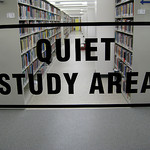The latest edition the Brooklyn Law School Library New Books List has 68 items that cover a broad range of legal topics. All of the titles provide users of the BLS Library with content that can help their research needs on a wide number of subjects. These items on the list deal, to select just a few, deal with themes that are newsworthy and perhaps controversial: Capital Punishment’s Collateral Damage by Robert M. Bohm (Call #HV8699.U5 B64 2013); Chasing Gideon: The Elusive Quest for Poor People’s Justice by Karen Houppert (Call #KF336 .H68 2013); Democracy of Sound: Music Piracy and the Remaking of American Copyright in the Twentieth Century by Alex Sayf Cummings (Call #KF3035 .C86 2013); The Tough Luck Constitution and the Assault on Health Care Reform by Andrew Koppelman (Call #KF3605 .K67 2013); Rebels at the Bar: The Fascinating, Forgotten Stories of America’s First Women Lawyersby Jill Norgren (Call #KF367 .N67 2013); and Payback: The Case for Revenge by Thane Rosenbaum (Call #K5103 .R674 2013).
Readers of this blog post who want a preview any of these items can click on the links above to see the item record which contains information about on the subjects for the selected book and a dust jacket for the book. When an item in the BLS Library catalog has a dust jacket, users can click on it to get use Amazon’s Search Inside feature which allows users to find the exact book to borrow from the BLS Library. SARA, the BLS Library catalog also has a browse shelf feature for each item record. By clicking on the browse shelf link next to an item’s call number, users will be able to quickly see what other items are located next to the item in the record. This is useful for researchers who are interested in a specific topic or an author and would like to see what else the library might own quickly.


